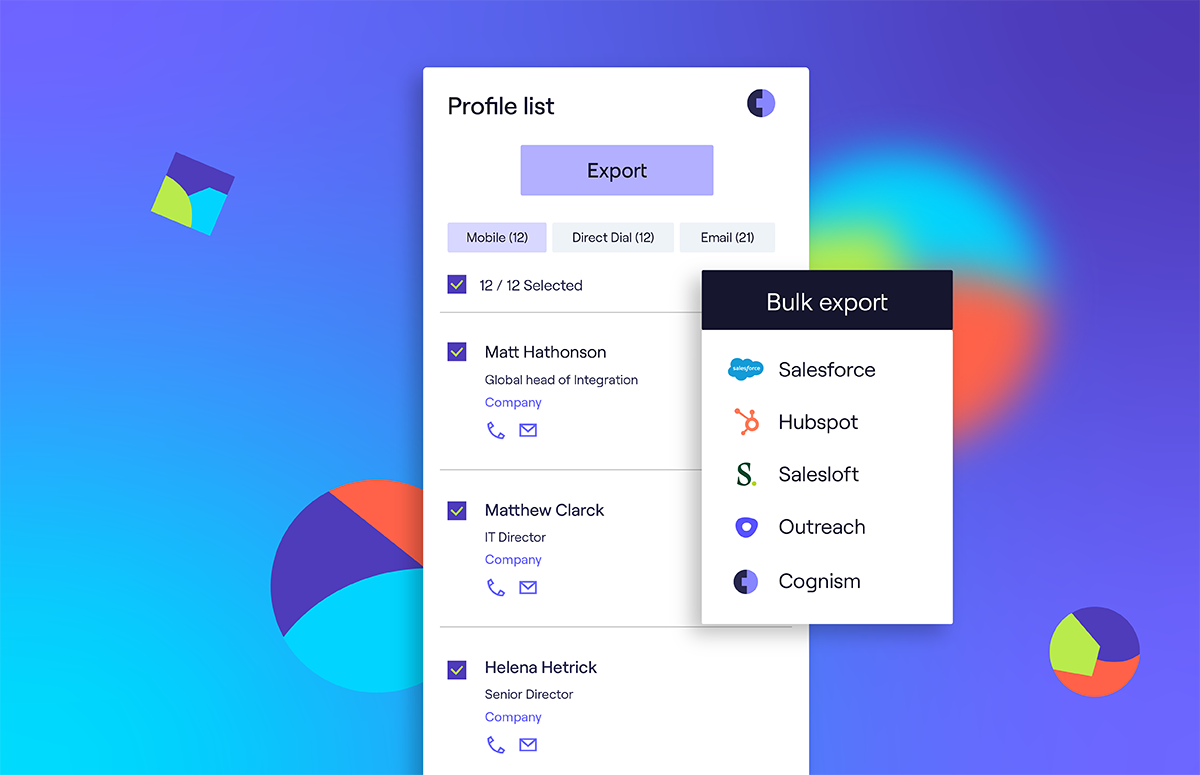How to Manage Remote Sales Teams: 10 Key Strategies
What's on this page:
As the digital age propels us forward, remote sales teams are rapidly becoming essential to modern business. They allow companies to harness talent from across the globe and offer increased work flexibility.
Yet, guiding such a dynamic team is no walk in the park. It demands a fresh approach and a deep understanding of the evolving landscape.
So, where do you start?
Explore our ten essential strategies for effectively managing remote sales teams 👇
1. Embrace the digital ecosystem
Leading a remote sales team means relying heavily on digital tools. Platforms like Slack for chatting and Zoom for video calls make real-time communication a breeze. LinkedIn, a CRM system (e.g. Salesforce), free or paid VPN, and outreach tools are critical.
But it’s not just about having the right tools; it’s about using them in the right way. Take the time to train your team on how to use these platforms to their full potential. Regularly check in to find out what’s working and what’s not, and be open to making adjustments to improve the workflow. Provide technical support for remote teams to optimize their performance, i.e. remind them to install the latest updates and clear system storage on Mac to keep things simple and efficient. It's the key to a well-coordinated remote sales team.
2. Foster strong bonds in your team
When managing remote outbound sales teams, it’s pretty common to face challenges like communication breakdowns and feelings of isolation. Addressing these issues proactively is vital to building a successful remote sales team.
Regular virtual meetings are a fantastic way to nurture camaraderie among team members, serving as a platform for work updates and a space for casual conversations.
Just because remote sales teams are primarily online, in-person meetups aren’t totally out of the question! The odd in-person meetup allows team members to bond and crank up their team spirit.
3. Set clear goals and maintain accountability
In the realm of remote sales team management, being explicit about expectations is a must. Each member of your team should be fully aware of their targets and the sales goals they must work towards.
But setting clear goals is just the beginning; maintaining a routine of regular check-ins is vital. This practice not only helps in tracking progress but also in holding each team member accountable.
Make performance reviews a regular feature; offer a structured space to discuss individual progress and address potential challenges.
Utilising a team management tool can greatly facilitate these check-ins and enhance accountability within your remote sales team.
4. Hire the right talent for your remote sales team
Leading remote sales teams to success starts with hiring the right individuals. Focus on finding self-motivated, disciplined people who are comfortable working autonomously.
You can identify these traits through behavioural interview questions or by assigning relevant short test projects. By prioritising these attributes, you lay a solid foundation for a productive remote sales team.
Click on this link to see Cognism’s top 10 SDR interview questions.
5. Define and differentiate roles
To build a robust and efficient team, you must clearly define and differentiate the roles.
Nicolas Vandenberghe, Co-Founder & co-CEO at Chili Piper, spoke about this very topic on our Revenue Champions podcast. He believes that it’s essential to separate the customer success and account management functions within remote sales teams.
Nicolas told us:
“The profiles and motivations for customer success and account management are very different. They have different aspirations and are good at different things.”
“In customer success, people are typically interested in the product, what it can do and how they can help. Our account managers have more of a sales vibe - they enjoy closing a deal.”
Clearly defining these roles allows each team member to focus on their strengths, leading to a more focused and effective team.
If you’d like to learn more, you can check out the full podcast episode here 👇
6. Measure success with the right metrics
To steer a remote sales team to success, it’s crucial to focus on the right KPIs, such as:
- Lead response time: The speed at which your team responds to new leads can be a key determinant of success.
- Opportunity win rate: This measures the percentage of sales opportunities that your team successfully converts.
- Sales cycle length: This metric tells you the average time it takes from initiating contact with a potential customer to closing a deal.
- Quote-to-close ratio: Analysing the number of quotes issued versus the number of successful sales helps assess your sales strategies’ efficiency.
Tools like Salesforce or Zoho CRM can help efficiently track these metrics, leading to better remote sales team management.
But remember, simply having good sales data isn’t enough; it’s essential to draw insights from it to guide your team. Discussing these metrics regularly can help refine strategies and encourage quick adaptation, setting your team up for sustained success.
7. Allow for diverse career paths
Career growth is a huge motivator for remote sales teams.
Why?
Providing diverse career paths boosts job satisfaction and increases retention!
Nicolas told us about the flexible promotion paths at Chili Piper:
“It is true that the typical pattern is for SDRs is to become Account Executives. At Chilli Piper, we have this thing called a ‘piper plan’; you tell us what your dream job is, and we’ll help get you there. We very much welcome SDRs moving into all sorts of positions.”
The ‘Piper Plan’ breaks from tradition, allowing SDRs more professional adaptability. They can aspire to roles in various fields, including account and product management.
You don’t have to follow this exact blueprint, but there are real benefits to providing career flexibility. It gives your employees more control over their careers - leading to higher job satisfaction and retention rates.
8. Provide continuous training
Regular training sessions are a cornerstone of managing remote sales teams successfully.
Focus your training on essential sales techniques and soft skills for building strong client relationships.
Elements such as active listening and effective communication help build client bonds that last!
Don’t overlook training on essential digital tools, either. Keeping the team updated with the latest features and functionalities can improve efficiency and collaboration.
9. Harness proven time management techniques
Mastering time management is a crucial component when you’re leading remote sales teams. The work-from-home setup comes with a unique set of distractions that can make productivity challenging.
Here’s a tip: introduce your team to robust time management techniques. Encourage the adoption of strategies such as:
- The Pomodoro technique: Work in blocks of 25 minutes, followed by a short break; this maintains high levels of concentration and prevents burnout.
- Time-blocking: Plan each workday to provide a clear roadmap for tackling various tasks and reducing procrastination.
- Dedicated workspace: Provide a “work from home budget” so employees can create a distraction-free workspace. This helps team members separate their work from their personal lives, enhancing focus.
10. Have a flexible approach to promotions
Managing remote sales teams sometimes requires questioning traditional strategies, especially regarding employee retention and promotion.
Nicolas told us:
“We have a very different approach from everybody else. We have no timeline - we move people when they’re ready. In my many years of experience, I’ve found that people do not progress linearly. People move at different paces, and you need to respect that, so putting everyone in an annual cycle is nonsense.”
Chili Piper has created an environment where employees evolve naturally - forget rigid timelines! They respect the pace of individual growth.
So what does this process look like?
It’s simple: watch, recognise, and promote when the time is right, even if that means a promotion within just two months.
The benefits of this flexibility are clear. It’s a practical and humane approach to talent development, aligning individual progress with the company’s growth.


%20Campaigns%20-%20FR%20copy%202.png)